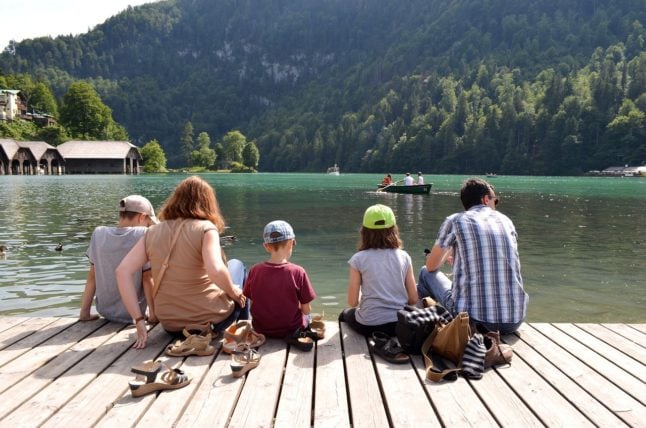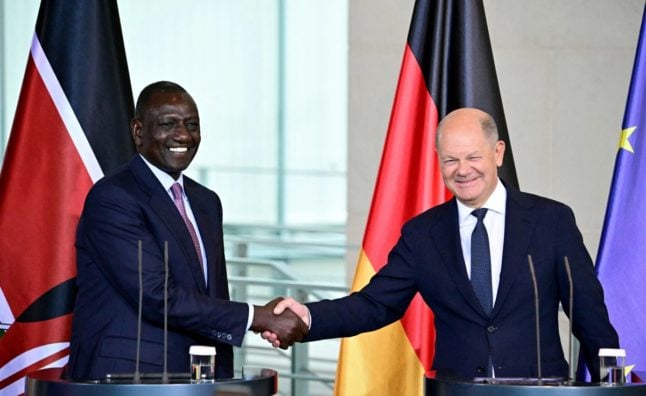If you have a legal residence permit in Germany, your non-EU national family may join you in the country – specifically your spouse or unmarried minor children, including stepchildren or adopted children. If you’re here on a skilled worker permit, such as an EU Blue Card and can provide for your family, you may also be able to bring your parents or parents-in-law after Germany changed rules this year.
However, your family does often still need to be able to demonstrate some level of German language ability to be able to get the reunion visa before they come here – even if they improve their skills when they do finally come.
This being Germany though, the number of exceptions and specific rules can seem confusingly bureaucratic. In short, the specific requirement depends on the family member, your relationship to them, the type of visa you have, where you’re coming to Germany from and more. We break it down in turn.
Spouses
Married spouses or registered same-sex partners have some of the most straightforward requirements. Typically, they need to be able to prove an A1 level of German. Out of the six levels on the European Common Framework of Languages, A1 is the most basic, beginner level – and covers only the most rudimentary of German expressions. These include being able to introduce yourself, order a drink, or ask for directions.
However, this requirement for spouses is waived in certain cases. For one, if it is impossible for the spouse to learn German and get certified in the country they’re applying from, they can apply for a hardship exemption. If a physical, mental or psychological illness prevents them from learning it, they can also request an exemption – but this will need a medical certificate to prove it.

Furthermore, if you hold the nationality of certain countries – namely Australia, Israel, Japan, Canada, South Korea, New Zealand, the UK, Andorra, Brazil, El Salvador, Honduras, Monaco, San Marino, or the US – your spouse will not need to demonstrate German knowledge.
Your spouse also won’t have to prove German knowledge before coming here if you yourself are on a skilled worker visa, such as an EU Blue Card.
Typically, your spouse will need to prove their knowledge through a certificate from an accredited institution for the German language. Consulate workers may waive this requirement at their discretion though, if the applicant can clearly demonstrate A1 German during their visa appointment.
READ MORE: A1 to C2: What are the different levels in German and how do I reach them?
Parents
Adult children bringing their non-EU parents to Germany for reunification only works if you’re here on certain types of visas – specifically skilled worker visas like an EU Blue Card and you can support them if necessary, or they can guarantee their own livelihoods. This rule is controversial because it only applies to skilled workers who have been issued a visa from March 1st 2024 – not those who were already in Germany on a visa before this date.
While you can bring your spouse and minor children to Germany on a student visa for example, you can’t bring your parents here on a student visa.
Even if you have the right permit, your parents will still typically have to prove they can speak German to an A1 level – again, the most basic. However, some of the hardship exceptions may also apply to parents as to spouses.
READ MORE: INTERVIEW: ‘Germany’s family reunion rules should be non-discriminatory’
Minor children
If your child is a minor, they can come to Germany with you. If they’re younger than 16 years of age, they won’t have to demonstrate any knowledge of German at all.
If, however, they’re either 16 or 17 years of age, they may have to fulfil some extra – and potentially arduous language requirements – such as being able to speak German at a C1 level or having completed vocational training. In these cases, the parents are generally asked to contact their local German mission, who will have more information on the specific requirements for their teenaged child.
READ ALSO: The changes to Germany’s immigration rules in March 2024



 Please whitelist us to continue reading.
Please whitelist us to continue reading.
Restricting parents from coming for earlier immigrants is absolutely insane. May make me leave